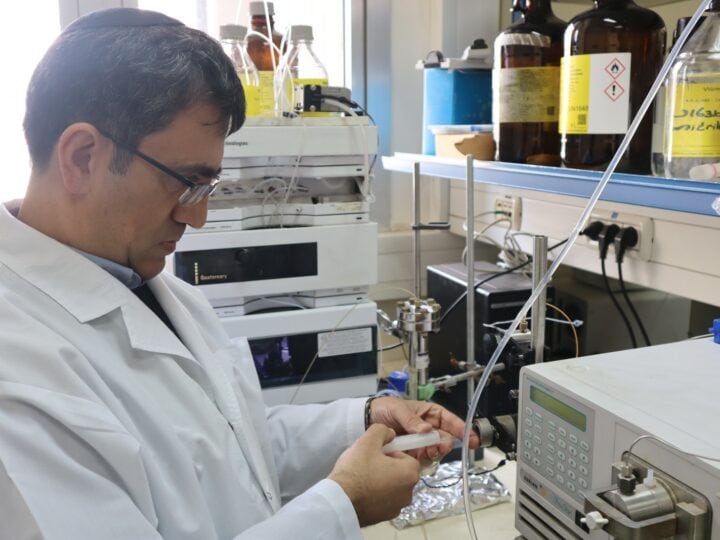Israeli scientists recently tested a new approach for treating Alzheimer’s disease that addresses the reduced metabolic mechanism in Alzheimer’s patients.
This metabolic mechanism impairment, which starts decades before the onset of dementia, results from dysfunction of the mitochondria, which produce most of the energy in the cell and are involved in its death and inflammation.
Despite Alzheimer’s already being linked to mitochondrial dysfunction, no drug candidates have targeted this aspect of the disease, leading researchers from Ben-Gurion University of the Negev to propose a new treatment approach targeting the mitochondrial gatekeeper, a protein called VDAC1.
In a study published in the journal Translational Neurodegeneration, the researchers showed that an increase the amount of the VDAC1 protein in the cell leads to its organization as a ring with a large channel through which death-factor proteins and mitochondrial DNA exit, causing cell death. Furthermore, they showed that the protein gets produced in large levels in the brain of a mouse model for Alzheimer’s disease, concentrating in the nerve cells around the plaque and leading to their death.
To combat this phenomenon, the researchers developed a small molecule called VBIT-4 that binds to VDAC1. The molecule was able to cross the blood-brain barrier and prevented pathophysiological changes associated with Alzheimer’s such as neuronal cell death.
The therapy prevented the decline of cognitive skills such as learning and memory in the mice tested, protecting against degeneration and promoting the healthy growth and normal functioning of neurons.
“Targeting VDAC1 with a novel molecule we developed presents an innovative approach to Alzheimer’s treatment, and can even be used as a preventive treatment,” concludes the study’s lead author, Prof. Varda Shoshan-Barmatz.
Fighting for Israel's truth
We cover what makes life in Israel so special — it's people. A non-profit organization, ISRAEL21c's team of journalists are committed to telling stories that humanize Israelis and show their positive impact on our world. You can bring these stories to life by making a donation of $6/month.









